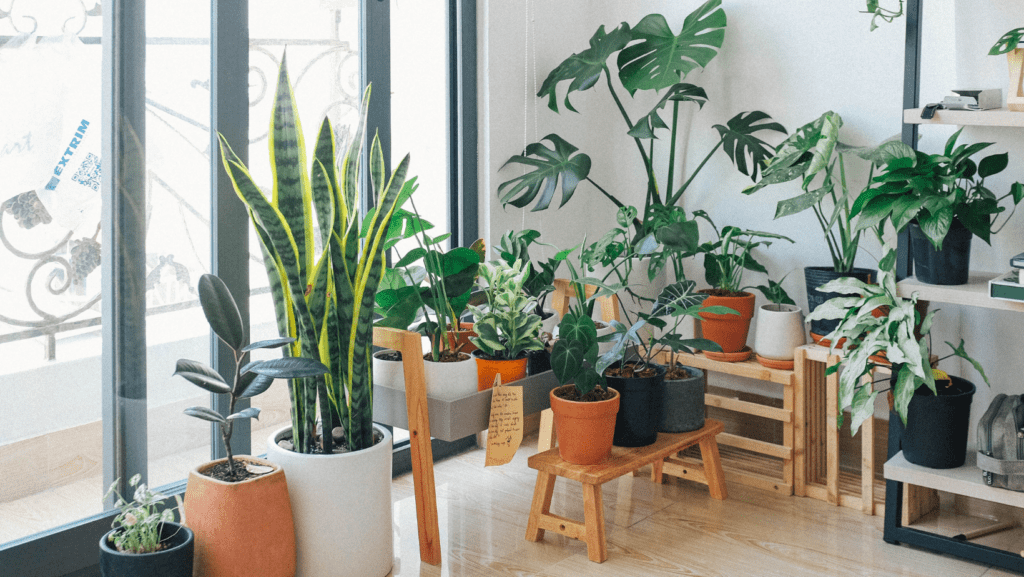We must adopt sustainable habits to have a smaller influence on the environment, save money, and make our homes healthier and more pleasurable. By doing so, we can substantially reduce waste production and carbon emissions, as well as improve our overall well-being.
Sustainability initiatives promote a healthier lifestyle for both single-family and multi-unit rental property tenants by minimizing exposure to harmful chemicals, enhancing interior air quality, and generating financial benefits. Additionally, by saving resources, reducing carbon emissions, and maintaining the regional environment, these behaviors are essential for preventing climate change.
Here are some tips for renters who want to live more sustainably and lower their carbon footprint.
Reduce energy and water consumption
Apartments must be energy and water efficient to have a minimal negative impact on the environment and save money. Tenants can save water and cut back on energy use by adopting water-saving techniques, fixing leaks, and encouraging appropriate water management. Additionally, energy efficiency benefits the environment, reduces expenses, and creates a comfortable living space.
To save energy, unplug appliances when not in use, switch to natural lighting, and use LED or CFL bulbs instead of incandescent ones. Set your thermostat to a temperature that is comfortable and energy-efficient, and use programmable or smart thermostats to adjust the temperature on a schedule. Insulate windows and doors to stop drafts and maintain a constant internal temperature.
By taking shorter showers and fixing leaks in your flat, you can cut down on your water usage. Use the water you have used to wash fruits and vegetables to also irrigate indoor plants or a balcony garden. If your rental home has a washer and dryer, use complete loads and select shorter wash cycles. To further enhance water economy, use eco-friendly detergents and let your garments air dry.
Avoid single-use items
Products like plastic bags, throw-away cutlery, and water bottles increase the amount of waste generated, which pollutes landfills and the ocean. By eschewing these items, anyone can contribute to waste reduction and environmental protection.
To support a sustainable lifestyle, think about using reusable shopping bags and spending money on premium water bottles and beverage containers. Use reusable food containers and utensils, and bring your own thermos or travel mug for hot or cold beverages. These simple lifestyle adjustments can help you consume fewer single-use items and make fewer recurrent purchases, which can help you save money in the long run.
Reuse and recycle containers
There are various ways to reuse or recycle the packaging and containers that come with the goods we purchase. While minimizing our environmental impact, recycling and reusing containers and materials like cardboard, wood, metal, and glass promote creativity.
The likes of jars and boxes can make unique decorations for homes. In order to make new, usable goods, people routinely recycle materials like cardboard, wood, metal, and glass at home. These options contribute to a greener way of life and lend a personal touch to your space. Good waste management practices, such as recycling and composting, can divert a considerable quantity of waste from landfills.
Make your own DIY cleaning products
The components bleach, ammonia, and phthalates are among many common cleaning products that are hazardous to both human health and the environment. These abrasive chemicals can cause skin irritation, respiratory difficulties, allergies, and other health issues. Additionally, their use frequently pollutes the air within buildings, and improper disposal can poison water supplies, endangering aquatic life severely.
To harness the power of eco-friendly cleaning solutions, use easily accessible substances like vinegar, baking soda, citrus fruits, and essential oils. As a deodorizer and for cleaning basins, bathtubs, and ovens, baking soda is useful. The addition of essential oils enhances antibacterial properties and imparts delightful aromas.
By choosing straightforward, natural alternatives that lessen your reliance on harsh chemicals and pointless packaging, you can contribute to the creation of a healthier and more sustainable living environment.
Improve indoor air quality with plants
Plants are necessary for sustainable living since they enhance indoor air quality, lessen dangerous pollutants, and aid in energy conservation. They produce oxygen and absorb carbon dioxide through photosynthesis, improving the environment and reducing air pollution.
Plants carefully positioned close to windows and balconies can assist control inside temperatures and releasing moisture through transpiration, preventing dryness in the winter. Choose regionally adapted or native plants that require less water, fertilizer, and maintenance. Include edible flora such as herbs and vegetables to reduce food waste. Use sensible irrigation and watering techniques, refrain from overwatering, and switch to effective strategies like drip irrigation. Use rainwater gathering strategies to save water and promote environmentally friendly plant growth by employing compost, natural fertilizers, or organic soil additions.
By implementing methods that lessen their influence on the environment and encourage resource conservation inside their rented premises, renters and tenants may simply contribute to a greener future.
You can live a sustainable life even if you rent an apartment contact Real Property Real Estate.












